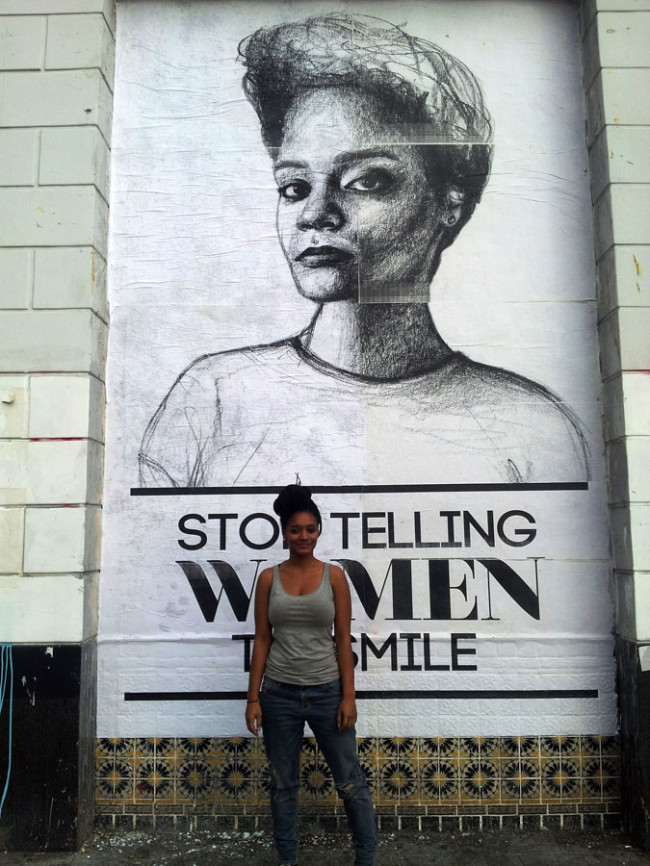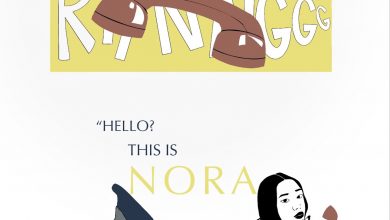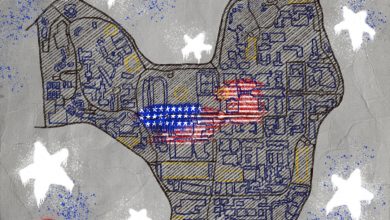Tatyana Fazlalizadeh: “Stop Telling Women to Smile”
Women should not have to reconsider their clothing choices when leaving their homes, feel any sort of guilt towards the way others perceive them, take alternative routes to work or school in order to avoid harassment, or censor their body language and speech to deter unwanted advances from men.
Women should not be groped during their daily activities nor should they be leered or yelled at from moving vehicles because of their appearances; women should feel safe in the community they live in. I am not the only woman who thinks this.
What better place to combat street harassment than on the same sidewalks that it so shamelessly occurs?
“Stop Telling Women to Smile,” a nationwide street art campaign to fight gender-based street harassment, is the product of such thinking. Tatyana Fazlalizadeh, a Brooklyn-based artist of Iranian and African-American descent was fed up with cat-calling and daily unwanted harassment from men as she went about her daily business in the streets of the cities she resided in.

Originally from Oklahoma City, Fazlalizadeh moved to Philadelphia to pursue her degree and she majored in illustration. Fazlalizadeh desired to create art that expressed her frustration with cat-calling, but initially did not know how to efficiently do so through her primary medium of oil-painting.
Interviewing everyday women about their experiences, Fazlalizadeh sketched their portraits, infusing their message of struggle through a caption that she felt embodied the conversation she and the interviewee had.
Captions include strong messages such as:
- “My outfit is NOT an invitation.”
- “Critiques on my body are not welcome.”
- “I am not your property. You’re not in control of my body.”
- “Women are not seeking your validation.”
- “Women are not outside for your entertainment.”
- “No me llamo mamacita, chiquita, preciosa, cht, cht.”
- “My name is not baby, shorty, sexy, sweetie, honey, pretty, boo, sweetheart, ma.”
- “You can keep your thoughts on my body to yourself.”
These portraits, accompanied by bold capitalized text, are a shout back at the men who objectify women with their gaze and cat-calling. In the words of Fazlalizadeh:
“The posters are directed toward men…but the posters are really for women. When they walk past it, I want them to feel like they have a voice, they have an advocate for them, they have somebody out there speaking up for them.”
Fazlalizadeh tells women that they are not alone as they walk around their communities and that their burden is shared with other woman in the community. Most importantly, she reminds women they should not be subjected to such constant mistreatment.
Spending the last year and a half traveling across the United States to hear the stories of women who have experienced harassment within their communities, Fazlalizadeh masterfully creates easily-digestible but hard-hitting pieces of art. In her interview with Quiet Lunch Magazine Fazlalizadeh explained:
“This project came about with my daily experiences being talked to and hollered at and approached and disrespected on the street. It’s more about the short, quick, really consistent degrading treatment that I and a lot of women experience. It’s annoying, it’s persistent, it’s frustrating it makes you feel kind of violated, it makes you feel like honestly you’re just kind of like a piece of meat walking down the street.”
Experimenting with wheat-pasting, a material commonly used by street artists around the world, Fazlalizadeh began her product, finally able to give a “face and voice” to the cat-called woman.
With empowering captions as “Stop Telling Women to Smile,” both the namesake of her series and the series’s most recognizable picture, Fazlalizadeh unsurprisingly received criticism. While speaking with Quiet Lunch, she commented on those who look at her as pessimistic and those who think that the men who tell her to smile have good intentions with the powerful statement:
“When I have a man tell me to smile I don’t feel like he is doing it for my genuine interest like he’s really trying to brighten my day, it’s kind of like a lame come on. I feel like a man is asking me to entertain him because a man is never like ‘Smile for yourself,’ but ‘Smile for me, ‘Let ME see that smile’, ‘You’re too pretty not to be smiling.’”
During the interview, when asked if she is a feminist, Fazlalizadeh said she would identify as such, defining feminism as “someone, male or female who just wants women to be treated like human beings…people think that feminists hate men; That’s not the case. We would like for men to be treated and looked at as people who deserve respect, who aren’t just fueled by this sexual rage.” Fazlalizadeh cares about her community and the people of all genders and races who reside within it.
Her bold message, which gives a face and voice to the cat-called woman, reminds us all that women should not have to continue experiencing the unwanted sexual advances and objectification that they face daily.
Can’t get enough of Fazlalizadeh and her project?
Want to get involved?
Join her project by purchasing a wheat-pasting kit from her website, stickers, or clothing. For more art work check out her “Get Angry!” set which represents the protests and revolutions of 2011! Also- for all the musically inclined persons out there I highly recommend Fazalizadeh’s revolutionary (and catchy!) collaboration with DJ Rich, featuring outstanding lyricists such as: Public Enemy, Gil Scott Heron, J Dilla, Bilal, Common, Most Def and more.




